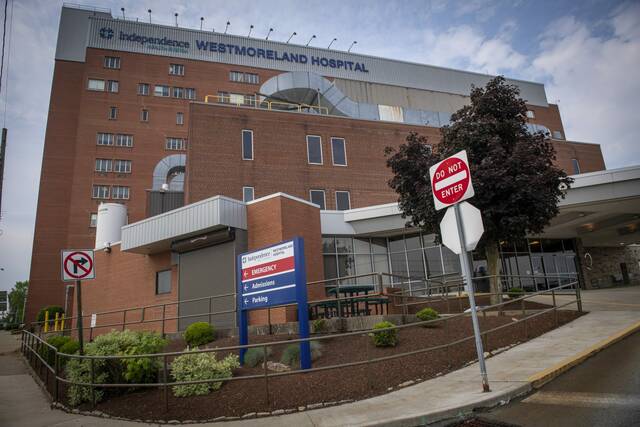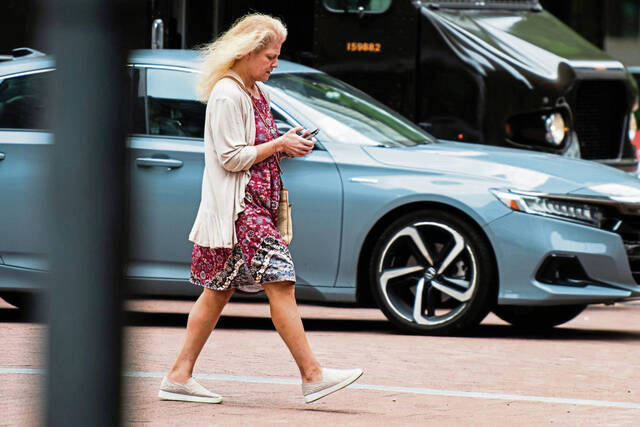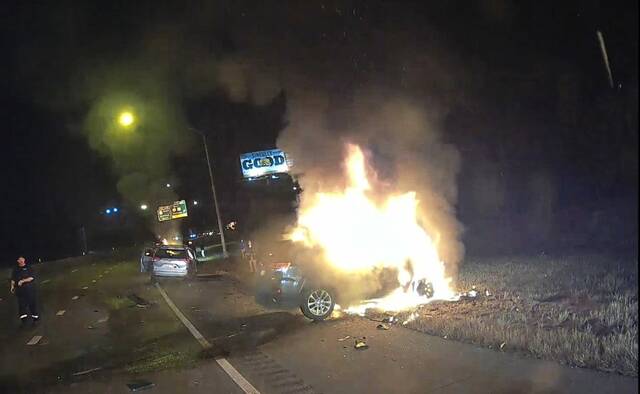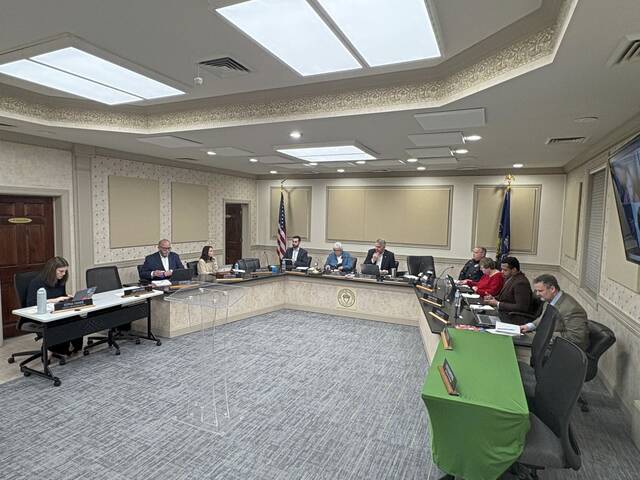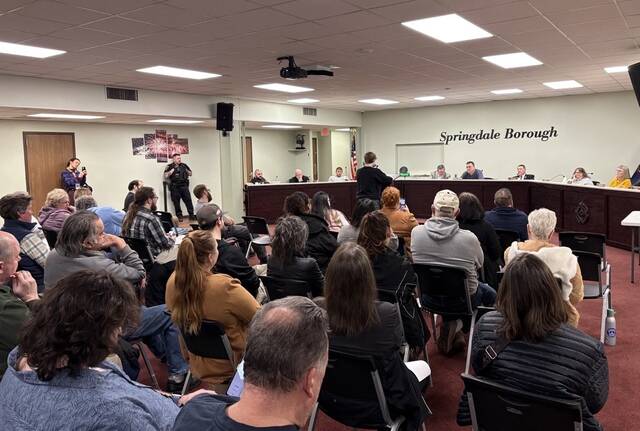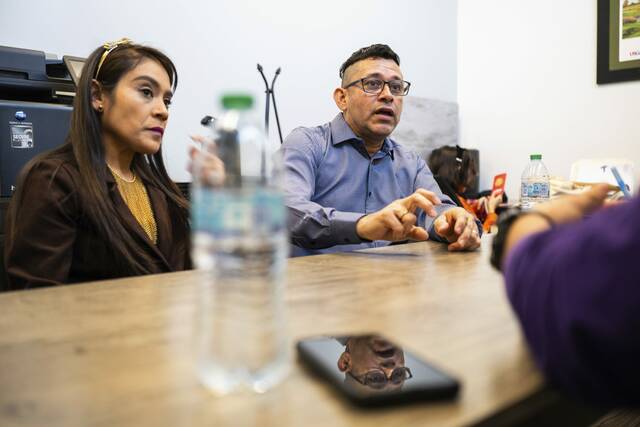Legislation being introduced to Pittsburgh City Council on Tuesday would seek voluntary payments from nonprofits to help pay for infrastructure improvements and, in turn, replace a controversial proposal to get the money by imposing a 1% tax on tuition and medical bills.
The legislation cosponsored by Burgess and Councilman R. Daniel Lavelle would create the Payments In Lieu Of Taxes, or PILOT, program to help fund the city’s infrastructure needs. The voluntary payments from nonprofits would be based on a percentage of what the organizations would pay in property and payroll taxes if they weren’t exempt.
“I realize I’m a David challenging the massive nonprofit Goliaths, but I believe the cause is right,” Burgess said.
Health systems and universities contacted by the Tribune-Review either did not return messages or declined to comment or said they were unable to comment because they had not reviewed the proposal.
Burgess estimated that, if about 70% or 80% of the city’s nonprofits participated, the measure could raise about $35 million per year. When Burgess proposed the tax on tuition and medical bills, which he called a “very modest 1% user fee,” he estimated it would raise at least $50 million a year for transportation needs.
Money collected from nonprofits would be put into a trust fund earmarked for improvements to the city’s aging infrastructure, which have become a higher priority in the wake of January’s Fern Hollow Bridge collapse, Burgess said.
The nonprofit legislation is modeled after a similar program in Boston, Burgess said. That program has seen between 70% and 80% participation from nonprofits there.
The payments would be entirely voluntary, but Burgess said he’s hopeful that nonprofits would see the need for the new revenue.
“There’s no way to get to the hospitals and universities in Pittsburgh without going across a bridge,” Burgess said. “There’s no way for their employees to get to work without going across a bridge. We all have a vested interest in this. This is something we all use, and we all need.”
Burgess’ initial proposal, to tax tuition and medical bills, was met with backlash from other local officials, who voiced concerns about the legality of such a tax and its burden on people who may already struggle to pay for such expenses.
“You lay on the table all of the possible alternatives, and then you pick from those alternatives which one to move forward on,” Burgess said. “These are the alternatives that I have generated. We should lay everything on the table. From these opportunities, we should pick the one that’s best for the city.”
In Burgess’s opinion, the PILOT program is the best option. “This has always been my preferred way,” he said.
In the legislation, Burgess and Lavelle note that 36% of the city’s real estate is exempt from real estate taxes, the city’s largest source of revenue.
About 500 parcels owned by the University of Pittsburgh, Carnegie Mellon University, Duquesne University, Carlow University, Chatham University, Point Park University, Robert Morris University, Allegheny Health Network and UPMC have a current assessed value of about $3.7 billion, according to the legislation. If properties were subject to property taxes, they would generate about $33 million in real estate tax payments each year.
The legislation said the city and nonprofits should aim to come to an agreement in which the nonprofits pay either half of what they would pay in real estate taxes or 75% of what they would pay in payroll preparation taxes, or a combination of the two.



